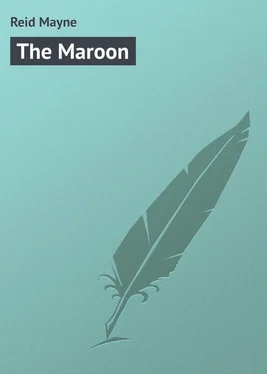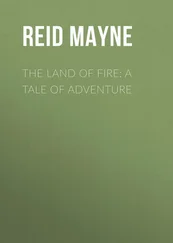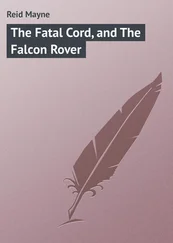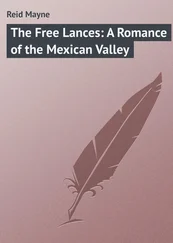Mayne Reid - The Maroon
Здесь есть возможность читать онлайн «Mayne Reid - The Maroon» — ознакомительный отрывок электронной книги совершенно бесплатно, а после прочтения отрывка купить полную версию. В некоторых случаях можно слушать аудио, скачать через торрент в формате fb2 и присутствует краткое содержание. Жанр: foreign_prose, на английском языке. Описание произведения, (предисловие) а так же отзывы посетителей доступны на портале библиотеки ЛибКат.
- Название:The Maroon
- Автор:
- Жанр:
- Год:неизвестен
- ISBN:нет данных
- Рейтинг книги:4 / 5. Голосов: 1
-
Избранное:Добавить в избранное
- Отзывы:
-
Ваша оценка:
- 80
- 1
- 2
- 3
- 4
- 5
The Maroon: краткое содержание, описание и аннотация
Предлагаем к чтению аннотацию, описание, краткое содержание или предисловие (зависит от того, что написал сам автор книги «The Maroon»). Если вы не нашли необходимую информацию о книге — напишите в комментариях, мы постараемся отыскать её.
The Maroon — читать онлайн ознакомительный отрывок
Ниже представлен текст книги, разбитый по страницам. Система сохранения места последней прочитанной страницы, позволяет с удобством читать онлайн бесплатно книгу «The Maroon», без необходимости каждый раз заново искать на чём Вы остановились. Поставьте закладку, и сможете в любой момент перейти на страницу, на которой закончили чтение.
Интервал:
Закладка:
It had even spread a couch for him: for the seed capsules had burst upon its branches; and the pale-brown staple thickly covered the ground beneath – offering a couch that, under the canopy of a West Indian summer sky, was sufficiently luxuriant.
Was there a supper as well? Herbert looked around – he was hungry. Not a morsel had he eaten since breakfast – only a piece of mess-pork and a brown wormy biscuit, on parting from the ship. Hunger had already made itself felt. During his wanderings, having his gun with him, he had looked out for game. Had any appeared, he was too good a sportsman to have let it escape. But none had shown itself – neither beast nor bird. The woods seemed deserted as himself. He could hear the voices of birds – all strange to his ear – he could see bright-winged creatures fluttering amongst the leaves; but none near enough for the range of his fowling-piece.
Now that he had come to a halt, and having nothing better to do, he took his stand, watching the open glade. Perhaps some bird might yet show itself passing from tree to tree, or flying about in pursuit of prey. It was the hour for owls. He felt hungry enough to eat one.
Neither owl nor night-jar came in sight; but his attention was attracted to an object edible as either, and which promised to relieve him from the pangs he was suffering.
Close by the cotton-tree stood another giant of the forest – rivalling the former in height, but differing from it as an arrow from its bow. Straight as a lance, it rose to the height of an hundred feet. It was branchless as a column of polished malachite or marble – up to its high summit, where its long green fronds, radiating outward, drooped gracefully over, like a circlet of reflexed ostrich plumes.
A child could have told it to be a palm; but Herbert knew more. He had heard of the noble “mountain-cabbage” of Jamaica – the kingly areca oredoxia . He knew that in the centre of that circlet of far-stretching fronds – in that crown – there was a jewel that had often proved more precious than gems or gold: for often had it been the means of saving human life.
How was this jewel to be obtained? Like all crowns, it was placed high – far above the reach of ordinary mortals. Young and active though he was, and a climber at school, he could never “swarm up” that tall, smooth shaft. Without a ladder a hundred feet in length, it would not be possible to reach its summit.
But, see! the palm-tree stands not alone. A great black lliana stretches tortuously from the earth up to the crown, where its head is buried among the tufted leaves, as if it were some huge dragon in the act of devouring its victim.
Herbert stood for a moment reconnoitring the grand stay-cable, that, trailing from the summit of the palm, offered, as it were, a natural ladder for ascending it. Hunger stimulated him to the attempt; and, resting his gun against the trunk of the ceiba , he commenced climbing upward.
Without much difficulty, he succeeded in reaching the top, and making his way among the huge pinnae of the leaves – each in itself a leaf of many feet in length. He arrived at the youngest of them all – that still enfolded in the envelope of the bud – and which was the object for which he had climbed.
With his knife he separated this summit leaf from the stem, flung it to the earth; and then, descending to the bottom of the tree, made his supper upon the raw but sweet and succulent shoots of the mountain-cabbage.
Supper over, he collected a quantity of the strewn fleece of the silk-cotton; and, placing it between two of the great buttress-like root-spurs of the tree, constructed for himself a couch on which, but for some hard thoughts within, he might have slept as softly and soundly as upon a bed of eider.
Volume One – Chapter Twenty Three
The Tree Fountain
That he did not sleep soundly may be attributed solely to his anxieties about the morrow: for the night was mild throughout, and the composition of his improvised couch kept him sufficiently warm. His cares, however, had rendered his spirit restless. They were vivid enough to act even upon his dreams – which several times during the night awoke him, and again, finally, just after the break of day.
This time, on opening his eyes, he perceived that the glade was filled with soft blue light; and the quivering fronds of the cabbage-palm – just visible from where he lay – had caught the first trembling rays of the sun.
Only there, and among the summit-branches of the ceiba , far overtopping the spray of the surrounding forest, was the sun yet visible. Everything else was tinted with the blue grey of the morning twilight.
He could sleep no longer; and rose from his forest lair, intending to make an immediate departure from the spot.
He had no toilet to trouble him – nothing to do, further than brush off the silken floss of the tree-cotton, shoulder his gun, and go.
He felt hunger, even more than on the preceding night; and, although the raw mountain-cabbage offered no very tempting déjeuner , he determined before starting, to make another meal upon it – remembering, and very wisely acting upon, the adage of “a bird in the hand.”
There was plenty left from the supper to serve him for breakfast; and, once more making a vigorous onslaught on the chou de palmiste , he succeeded in appeasing his hunger.
But another appetite, far more unpleasant to bear, now assailed him. In truth, it had assailed him long before, but had been gradually growing stronger; until it was now almost unendurable.
It was the kindred appetite, thirst; which the cabbage-palm, instead of relieving, had, from a certain acridity in its juice, only sharpened – till the pain amounted almost to torture.
The sufferer would have struck off into the woods in search of water. He had seen none in his wanderings; still he had hopes of being able to find the river. He would have started at once, but for an idea he had conceived that there was water near the spot where he had slept.
Where? He had observed neither stream nor spring, pond nor river; and yet he fancied he had seen water – in fact, he felt sure of it!
In a very singular situation he had seen it – so thought he at the time – since it was over his head in the cotton-tree!
On the previous evening, while upon the crown of the cabbage-palm, he had glanced slantingly across, among the branches of the ceiba . This, as with all great trees in the tropical forests, was loaded with parasites — vriesias , long ragged-looking cacti, bromelias, epiphytical orchids, and the like. Tillandsias too, of the kind known as “wild pines,” grew in the forks, or on the upper surface of the great limbs, flourishing as luxuriantly as if their roots rested in the richest soil. Among them was conspicuous the most magnificent of the genus, the noble Tillandsia lingulata , with its spike of gorgeous crimson flowers projecting from the midst of its broad sheathing leaves. It was in the concavities of these huge leaves that Herbert had observed something which did not belong to the plant – something he believed to be water .
It would cost but a few seconds’ time to confirm or refute this belief – a climb among the branches of the ceiba . Another huge parasite, from the same root as the former, trended tortuously up to the limbs of the silk-cotton-tree – here and there touching and twisting around them. Its diagonal direction rendered it easy of ascent; and Herbert, impelled by his desire to drink, commenced climbing it.
Ere long, he had succeeded in reaching a main fork of the ceiba , where nestled one of the largest of the wild pines.
He had not been deceived. In a hollow formed by one of its huge ventricose leaves was the natural reservoir he had noticed – the gathering of dew and rain, which the rays of the sun could never reach.
Читать дальшеИнтервал:
Закладка:
Похожие книги на «The Maroon»
Представляем Вашему вниманию похожие книги на «The Maroon» списком для выбора. Мы отобрали схожую по названию и смыслу литературу в надежде предоставить читателям больше вариантов отыскать новые, интересные, ещё непрочитанные произведения.
Обсуждение, отзывы о книге «The Maroon» и просто собственные мнения читателей. Оставьте ваши комментарии, напишите, что Вы думаете о произведении, его смысле или главных героях. Укажите что конкретно понравилось, а что нет, и почему Вы так считаете.












